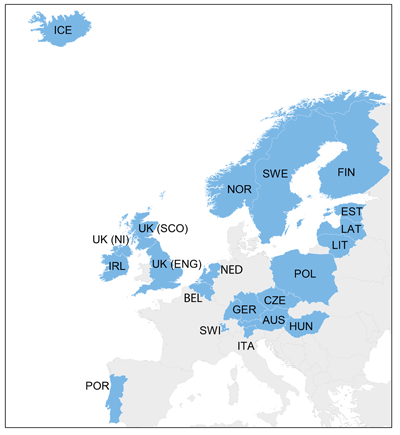
Head of Strategic Planning and Management Research Group, Historic England, The Engine House, Fire Fly Avenue, Swindon SN2 2GZ, United Kingdom. Email: Barney.Sloane@HistoricEngland.org.uk
Cite this as: Sloane, B. 2018 Making Choices: Valletta, Development, Archaeology and Society, Internet Archaeology 49. https://doi.org/10.11141/ia.49.3
The European Archaeological Council's working group on 'Making Choices' conducted a survey of EAC member states about the ways in which they make decisions in archaeological heritage management with particular reference to development-led archaeological investigation. The driver for this is the belief that the approaches to development-led archaeology need to be more transparent and proportional to ensure continued state and developer/investor support. Based on a significant response (73%), the survey gave a very useful insight into the way in which archaeological sites are defined and inventorised, the processes by which development-led investigations are designed, the means by which information is published and results (and collections) archived, and the means by which the public are engaged in the process. The survey identified three key areas where choice-making is very much in the hands of professional practice. These are: developing a clearer understanding of the significance of protected archaeological sites in the context of Valletta, assessing sensitivity to change for any sites proposed for development, and the design of the investigation itself. In addition, the survey revealed a clear interest in developing better ways of advocating the public value of development-led archaeology. This article summarises the issues raised in the survey and concludes that the most useful ways in which EAC could help its members would be through the preparation of guidance, case studies or toolkits — regardless of what legal or statutory structures are in operation in a given state — on the following subjects: understanding and articulating significance, developing national and regional research frameworks into which new excavations might be integrated, articulating the public value of archaeological investigation and developing better approaches to archaeological archives.
Go to article Table of Contents.